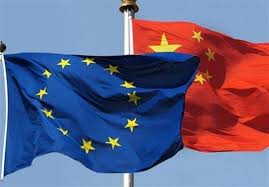
After a nine-month investigation, the European Commission found “clear evidence” that China is discriminating against EU medical devices and suppliers and limiting their access to government contracts. In a report, published in January, the Commission concluded that China’s measures and practices relating to the procurement of all categories of medical devices “results in a serious and recurrent impairment of access of Union economic operators and Union-made medical devices to [China’s] public procurement market for medical devices.” Pledging to “take decisive action to defend the level playing field and support fair competition,” the Commission is now determining whether to impose penalties on China. This post outlines the Commission’s findings and potential remedies, as well as its consultations with China and rejection of China’s bilateral agreement proposal.
The Commission conducted its investigation of China’s medical device procurement under the International Procurement Instrument (IPI), a trade defense tool implemented in 2022. The aim of the IPI is to encourage third countries to open their public procurement markets to European suppliers on a reciprocal basis or face a ban or restrictions in their access to the EU procurement market. The European Commission had launched the investigation—its first under the IPI—in April 2024, on its own initiative (and not a complaint from an interested party or a member state).
The Commission’s findings centered on a ‘Buy China’ policy and centralized volume-based procurement. ‘Buy China’ policy measures encourage the development of the domestic medical devices industry, especially high-end devices. It has two interlinked elements: measures and practices favoring the procurement of domestic medical devices and those restricting the procurement of imported medical devices.
Legal measures implementing the ‘Buy China’ policy begin with the main procurement law—the Government Procurement Law, which provides for a generally applicable preference for the procurement of domestic goods and services, including medical devices, and leads to discrimination against imported goods. It is implemented through other measures at the central and provincial level. Another country-wide requirement directs all local authorities, including public hospitals, to increase the procurement of domestic products for 178 categories of medical devices.
The second prong of the Commission’s findings related to measures governing volume-based procurement of medical devices. This involves the acquisition of very large quantities of products subject to strong competition at the national or provincial level. To obtain lower prices, the procuring entity sets a maximum number of finalists, establishes a maximum reference (or ceiling) price, and maximum price margins for bid selection. The Commission found that some of the largest Chinese manufacturers of medical devices have won in volume-based tenders that resulted in significant price decreases. European suppliers are not able to compete under such conditions.
A Commission Staff Working Document provides additional details on the Commission's findings and specific procurements conducted under the discriminatory measures.
In a welcome move, the EU also described its consultations with China on the investigation. It noted that the Chinese government “did not contest the existence of the alleged measures and practices” identified by the EU nor did it deny that they create a preference in public procurement contracts for medical devices manufactured in China. However, China refused to open unilaterally its procurement of medical devices or to propose “any specific corrective action to remedy this serious and recurrent impairment of access.” Instead, it claimed that its future accession to the WTO Government Procurement Agreement—now in the 18th year of negotiations—could solve the Union’s concerns. China proposed the negotiation of a comprehensive bilateral procurement agreement with the EU. The Commission rejected the proposal, pointing out that the objective of the IPI investigation was “to achieve reciprocity and ensure a level playing field, which requires the elimination of the discriminatory barriers identified.”
The Commission is now determining whether to adopt measures provided for in the IPI Regulation. Article 6 authorizes the Commission to restrict China’s access to EU public procurement by requiring contracting authorities or contracting entities to impose a score adjustment on tenders submitted by Chinese suppliers or exclude tenders submitted by economic operators originating in China.
China has no international obligations to open its government procurement to the EU or any other trading partner as it is not a party to any international procurement agreement. Nonetheless, the EU has allowed it to participate in its procurement. However, as the European Court of Justice ruled in the Kolin case, suppliers from third countries without procurement obligations with the EU do not have rights to equal treatment in EU procurement. This ruling adds to a growing trend in the EU to reconsider the openness of its procurement market to countries that do not provide reciprocal access. Adoption of the IPI was the most significant measure reflecting that trend.
Jean Heilman Grier
February 19, 2025
Related Posts
EU Uses New Trade Tool to Probe China’s Purchase of Medical Devices

